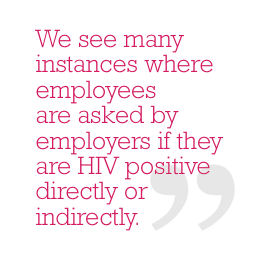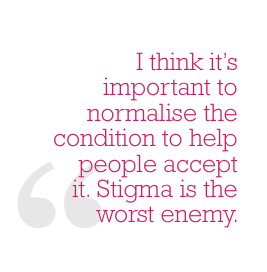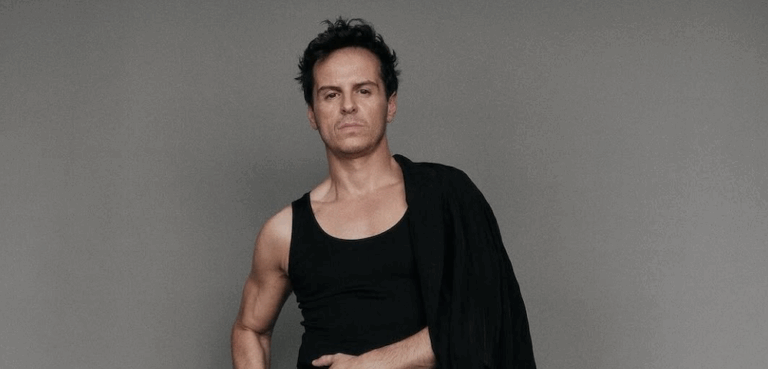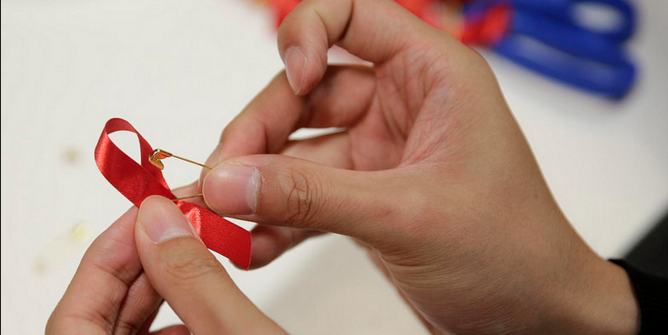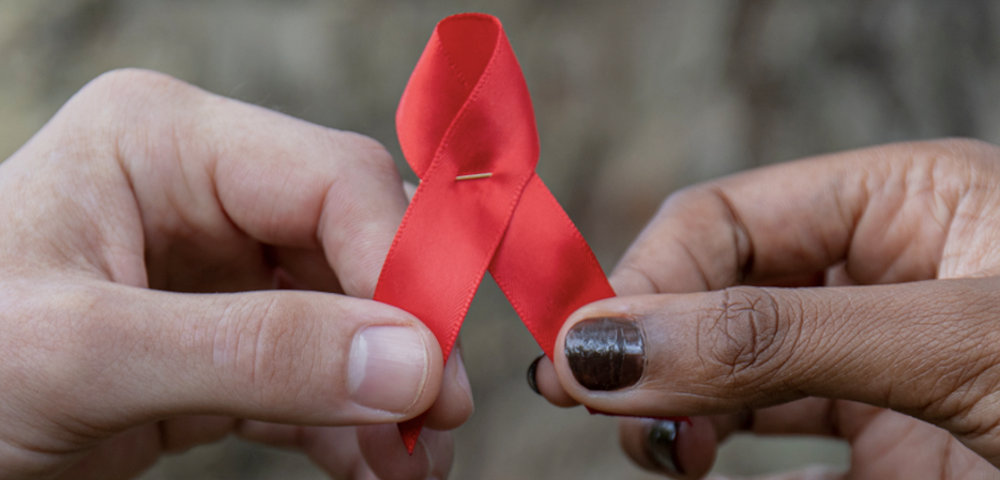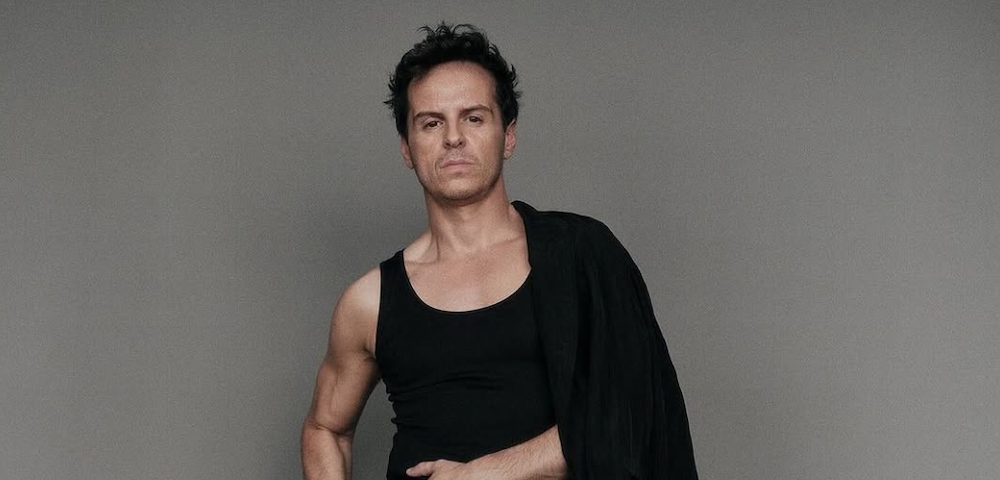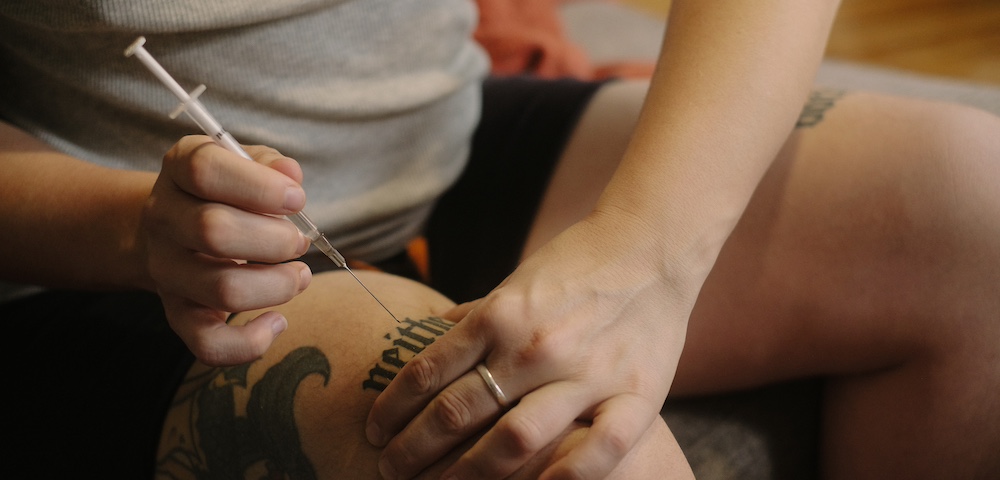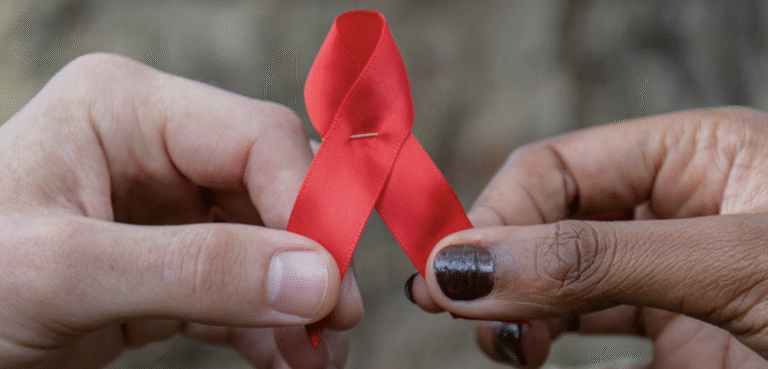
The quest to topple HIV stigma

CENTRAL Queensland’s sapphire fields, 1990. A time where HIV was regarded as leprosy and there was a general perception that HIV-positive people were to be avoided. Living in a small town of 1200, Bill Chappelle had made a big decision. He was about to tell his best friend he’s HIV-positive.
Sitting down with her one evening at his cabin, he tells her his secret. She immediately jumps from the table, looking like she’s about to catch fire.
[showads ad=MREC]“You filthy bastard, how can I stand to be near you? I never want to see you again,” she says, before storming out the door. They’re the last words he ever heard from her.
As the rumour spread and people in town found out, Bill recieves a new diagnosis: clinical depression. He eventually leaves town, and it will take 10 years before he ever reveals his status to anyone again.
Fear is one of the strongest emotions. It’s part of our instinct of survival. But what happens when fear results in discrimination? A recent survey by HIV Foundation Queensland revealed that 81 per cent of Australians think HIV-positive people are treated as outcasts. The participants were also asked questions like “would you share a house with an HIV positive?” and “would you let them look after you children?”
Almost half of them said no.
_________________________________________________
THIS year, Queensland had the highest increase of HIV diagnoses ever. The health care system doesn’t track the amount of tests conducted, which makes it impossible to say if it’s a case of more Queenslanders being tested for HIV or if HIV transmissions are actually increasing. There have been similar trends in other Australian states.
At the same time, discrimination and stigma around HIV continues to exist.
“There are still people who believe that sharing dishes with HIV-positive people gives them a chance of being infected. That’s even after 30 years of education on the matter,” Bill Chappelle said.
He’s the longest-serving board member of Queensland Positive People (QPP) and has lived with HIV for 30 years. Besides the experience of his friend storming out on him 25 years ago, he’s also experienced being refused dental treatment.
“Even my kids have suffered from these prejudges, since some people think HIV transmits through hugs,” he said.
Although NSW has the majority Australians living with HIV, Queensland and Tasmania have experienced the largest relative increases in HIV diagnoses over the past decade. They are also assumed to increase the most from 2010 to 2020, according to a study funded by the National Association of People With HIV/AIDS. The same study stated that from 2010 to 2020, there’s expected to be a 36 per cent increase of HIV-positive people in Australia — a total of 28,422 people.
THROUGH his work Bill has assisted HIV-positive people who have been discriminated. One example was Paul.
“He’d been really lonely and isolated after he got diagnosed, and hadn’t been out on a date for 10 years,” Bill said.
“We set him up with another man, and they ended up hitting off really well. However, later on the date when he decided to be honest about his condition, his date stood up without saying a word and walked away.
“He never saw or heard from him again. That’s a harsh experience for someone who’s been afraid of socialising for 10 years. It could’ve been handled much better.”
Jake was another person who crossed paths with Bill.
“He wanted a tattoo, but was told at the tattoo shop that they didn’t do tattoos on HIV-positive people,” Bill recalled.
“With the standard equipment they use, there would be no danger of transmission.”
Misunderstandings about how HIV transmits continues to be an issue, especially incorrect beliefs that it transmits through salvia and touch. HIV is transmitted through semen, vaginal fluid, blood or breast milk. Even if an incident of risky sexual behaviour were to occur, there’s only a four per cent chance the HIV would transmit if the positive person is on a successful treatment regime.
_________________________________________________
IN June 2014, Aaron was diagnosed with HIV. During eight years of working full time for a food company, he’d progressed from staff member to store manager. But after being diagnosed, he had to take six months off on sick leave. He was ready to return in January 2015, but his colleagues of eight years suddenly gave him the cold shoulder.
“I was told by the HR-manager that there were people who would no longer want to work with me,” Aaron recalled.
“I handed them my clearance to work form from my psychiatrist, but they responded by asking for a clearance that said I could work in a food prep area.
“The manager looked at me, and once again she repeated ‘in a food prep area’.”
Aaron left the meeting that day and has not returned since. The stress of the situation sent him into depression and he’s currently off on income protection.
“I remember the pure shock that after eight years of employment, I could be treated like that by people I respected,” Aaron said.
“I think this type of discrimination still exists due to ignorance. These people aren’t mean people, they just aren’t educated, and I don’t even blame that on them. Even before I was diagnosed, I would probably have steered clear of anyone with HIV.
“Lack of education is a huge problem, not just in this country, but also around the world. This is, in my opinion, no longer acceptable in a first world country.”
_________________________________________________
AUSTRALIAN governments have made it illegal to discriminate against people on the grounds of any health status, including HIV.
Despite this, QPP helped 11 people with cases of discrimination from January to March this year. Some HIV-positive immigrants are also allegedly being denied immigration visas because their treatment takes up limited resources and is a burden for taxpayers. QPP advocacy officer Sharna Quigley has assisted individuals in anti-discrimination matters involving employment, government departments and higher education.
“We see many instances where employees are asked by employers if they are HIV positive directly or indirectly,” she explained.
“Sometimes an employer will ask why a person needs time-off regularly to attend doctor appointments. There is no obligation to answer the question or reveal it’s about HIV but it does often lead to disclosure by the individual they are HIV-positive.”
A BRISBANE-based office, just a few years ago. Two pairs of eyes stare at Alex as he steps into the meeting room where a manager and his team leader are waiting for him. It’s 9am on a Monday morning and almost six months since he left Sydney for a new job in a new state. Only one week separates him from finalising his probation time — one week until he’s regarded a permanent employee.
“You’re being dismissed,” the manager says. Alex’s heart starts pounding.
“You have 10 minutes to pack your stuff and leave.”
The team leader stands up and walks him to his desk, making Alex feel he’s being watched and controlled in case he goes crazy. He is then sent straight to the elevator before he can even grasp the situation. His admission card is taken from him with one clear message: his work here is done.
Alex, 36, had been diagnosed with HIV just before he moved to Brisbane, and decided to be honest with his direct manager.
“Since it was early in my diagnosis, I had to take time off work for treatment. She said she was cool with me taking several hours every month for appointments,” Alex said.
He made up for the missing hours by working overtime every week over the next five months. However, when the last month of his probation period arrived, their understanding changed. They wouldn’t allow the flexible arrangement anymore.
“I was told I had to take sick or annual leave to attend appointments, even though I wasn’t sick or on holidays. I complained, and was dismissed one week before my probation time was over on the ground of ‘performance and/or conduct’,” Alex recalled, highlighting that he had received just as good feedback on his performances as the others in his team yet no one else was dismissed during the last couple of months of their probation periods.
“I put together a claim and it was accepted on the grounds of HIV impairment discrimination and victimisation,” Alex said.
“The deputy manager had also asked me during my first job interview if I was gay, which got included in the claim. The company didn’t accept any blame.
“However, they agreed to settle for a small financial amount and gave me a statement of regret.”
_________________________________________________
BILL Chappelle says 50 per cent of new transmissions in Cairns happen between heterosexuals, but there’s still a general perception that HIV is a “gay disease”.
“There’s even men who are in heterosexual marriages but have sex with other men who think they can’t catch HIV if they aren’t gay,” he said.
“Other people just don’t want to know if they’re HIV-positive and avoid getting tested.
“It takes peer support to spread awareness of how transmission happens, as well as educating the society about HIV through TV, ads, newspapers, hospitals and schools. We’re the ones transmitting and if they don’t engage us, there’s no way they will end HIV.”
Bill also believes education about HIV should be a part of the school curriculum from the age of 12.
“We’ve tried to get it through,” he said.
“Sadly, the parents are more afraid of their children learning about homosexuality than informing them about the transmission of HIV.”
_________________________________________________
IT has been 25 years since Bill was abandoned by his best friend, but he has put the incident behind him a long time ago. Today, the situation has turned around completely.
Bill came forward as HIV-positive on the front cover of Cairns’ local newspaper in 2010. The day after, he was met by a wide smile from a ditch digger in the street: “I know you. You were in the newspaper speaking about HIV, good on ya, mate.”
Hours later, as he walked by a shop, the shopkeeper came out and shook his hand, saying it was about time somebody spoke about HIV. Everyone from his local green grocer, to his butcher and mechanic commented positively on his outing.
When he went to Melbourne for a yearly AIDS conference, he decided to tell everyone from taxi drivers to waitresses to homeless people that he was HIV-positive. The response was overwhelming. It sparked conversations and people were generally interested in learning more.
After revealing his HIV status while giving money to a homeless person, they came running after him down the street with a box of donuts, wanting to share them with him.
A couple who was eating at a restaurant invited him over to their table because they saw his t-shirt said “I’m HIV+”. They talked for hours, and they demanded that he’d stay with them the next time he was visiting Melbourne.
“I think it’s important to normalise the condition to help people accept it. Stigma is the worst enemy,” Bill reflected.
“If the government don’t prioritise the matter more, I’m afraid it will get completely out of control. It’ll send HIV positives underground and then there’ll be no coming back.”
NOTE: Except for Bill Chappelle and Sharna Quigley, names have been changed for this story.
______________________________________
RELATED: On the Path to Zero Transmissions
RELATED: The Rise and Rise of PrEP
RELATED: The Case for PrEP
RELATED: The Blame Game (PLHIV Share their Personal Stories)
______________________________________
**This article was first published in the December edition of the Star Observer, which is available now. To obtain a copy, click here to find out where you can grab one in Melbourne, Sydney, Brisbane, Adelaide, Canberra and select regional/coastal areas.
Read the December edition of the Star Observer in digital format:
[showads ad=FOOT]
